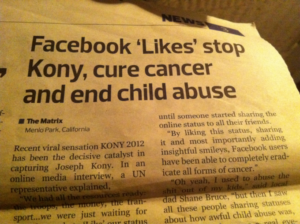
Prompt Images
Times sure have changed.
Once upon a time, the Christian Church and its Bible held the answer to man’s burning questions about how he was supposed to act. Not sure if you should covet your neighbor’s wife? Check out Exodus for that. Wondering which of all the delicious hoofed animals it’s OK to eat? Leviticus gotchu, fam. When your current life is one of toil and darkness, you’re naturally going to turn to a source who claims knowledge of how to be rewarded in the next.
To that end, Christian doctrine identified seven acts that directly caused other immoralities. They’re not directly mentioned in the Bible anywhere, but they came to be known as the Seven Deadly Sins: Lust, Wrath, Sloth, Envy, Greed, Gluttony, and Pride. Avoid these, you’d be told, and you’ll naturally live an upright and moral life.
Of course, today the world is quite different from the days of yore. We’re not as concerned anymore about rewards of the next life after a lifetime of drudge and disease (at least, not in much of the U.S.). We don’t need as much guidance on how to reach the next life; we need to know how to navigate this one. With the Internet linking communication and culture across the globe, today’s moral signposts should be concerned with open communication and understanding diversity of view and of personality. So I’ve made a few tweaks.
Enter the digital versions of the Seven Deadly Sins.
Gluttony
Gluttony always struck me as a weird sin. Liking food a lot? I guess that’s bad?
The Church disliked Gluttony because it could lead to depriving others from essential food. It also represented a shift to earthly, base pleasures and away from the purer pursuits of improving the mind and soul. Liking food isn’t bad. Eating for the sake of eating is what makes Gluttony so sinful.
So the digital equivalent has to both starve folks of something they would need (or want) and be done for self-gratification rather than for any functional purpose. This one’s easy.

We all just want somebody to love us.
Vaguebooking is when your contributions to the digital world of social media are crafted only to draw attention to yourself. No information is shared and there’s no attempt at communication. Instead, we want to say… something… but not really anything… to find out who cares about us?
Look, I get it. I’ve been called out for it before, and I’ve checked myself before clicking “Post” on some vague posts before. But the fact that this happens points to our society’s inability to express negative emotions and the unreal nature of social media to begin with. Change the disease, don’t address the symptoms. If you had a bad day, and need some support, that’s OK and human.
The solution? Ask for support explicitly.
Realize that most of what people put on social media is designed to showcase the best of themselves and not be true representations of their lives. So it will feel weird posting something negative. But do it anyway. If you’d talk about your problems with people in person, then you can certainly do it on social media. If you really aren’t sure who you can turn to when something’s going poorly, or who you should share that with, you need to develop those relationships somewhere outside of the public sphere of social media. Don’t go checking to see who cares enough to reply.
Vaguebooking is annoying, but it’s a relatively harmless sin. We can ignore it, unfriend the folks, or ask them to do better, so I give this only a 2/10.
Lust
As Sins went, Lust was one of the less serious ones. Lust is an unbridled desire, traditionally for the carnal. It’s a failing of the flesh. Lust stemmed from faculties and natures that man shared with the beasts and was not a defect of the mind or spirit. So the Church didn’t weigh it as heavily as other transgressions.
We haven’t risen above these sins of the flesh, and today’s parallel is pornography addiction. Enjoying pornography can enhance intimacy between lovers, provide temporary relief of sexual urges, and enable a more enjoyable and varied sexual experience. When it devolves to addiction, the experience becomes selfish and embittering, and can develop into violence when sex in the real world isn’t as easy to obtain as in the movies.

No one watches porn with the lights on, apparently.
The digital version of Lust should be taken more seriously than the original. It can still foster divisions between the sexes in a time when many people are actively working to take apart the patriarchy. But it’s still not as bad as the others. Naturally, by definition, those addicted to pornography don’t generally interact much with the outside world.
I’d give it a 3/10.
Greed
With Lust behind us, which is a desire for the carnal, we turn to Greed, which is a desire for the material. Greed was originally a big concern for the Church. After all, those who are focused on accumulation and consumption are not focused on the more ephemeral Kingdom of God. You gotta keep your eye on the Heavenly prize… stop dreaming of earthly desires! (And, coincidentally, stop focusing on the treasures of the Church.)
In today’s digital age, the goal of the Internet is to empower and communicate. So what does it look like when Greed gets its grubby hands on that mission? It looks something like this.

Seriously? Why may I like this?
Ad networks are a corrupt perversion of the reason we get online. How many times have you been interested in seeing an album of 25 cute animal pictures, only to find that the website sharing them has broken them into 25 separate pages to maximize ad views? Or tried to download freeware from, say, downloads.com only to discover you don’t know which “Download” button is actually for the software and which is an ad?
The Internet has turned into an arms race where delivering content to people is not as important as finding ways to pay for that content. Instead of websites with information we have websites of ads. Instead of folks visiting websites, we talk about sites “serving” views.
Some manage the advertisements better than others, but it’s irritating in nearly every case. This is why I donate to Wikipedia’s yearly donation drives, to help keep them ad-free. This is why we should subscribe to online versions of newspapers. This is why hackers target ad networks: The damn things are everywhere.
And I don’t know about you, but I’ve never clicked on an embedded ad with the intention of buying something. If I’m buying online, I start with a Google search. So we have all of this digital spam distracting 99.999 percent of us because of the 0.001 percent who actually click that nonsense.
For being worthless examples of human Greed that deliver nothing of worth to the people who are targeted, ad networks definitely deserve a 4/10.
Wrath
Anger, in and of itself, isn’t harmful. The Church distinguishes between righteous anger and wrath, which is excessive, brutal, and violent. Anger can move a person to improve a situation; wrath guarantees that they will destroy it. Usually, society or laws hold our Wrath in check.
It’s the Internet’s lack of laws and society that give rise to the digital equivalent of Wrath. The double-edged sword of the Internet means that anyone can partake. We can shed our physical limitations and identities to gather in what is, ideally, a meeting of the minds or a sharing of intellectual and creative work.
But as soon as more than one person logs on, there are bound to be differences. Mask someone’s identity and you take away the external pressures for them to preserve their reputation. Lo and behold, we get the modern version of Wrath, Internet Tough Guy Syndrome.
In sports, war, or other contests of brutality, it’s par for the course to display violence toward your opponent. The digital version of Wrath throws violence into the mix on topics as esoteric as whether or not global warming exists to the best weight lifting routines. You wouldn’t believe what people say online when told someone differs with them on something they believe strongly.
Notable examples such as GamerGate and revenge porn have started a greater conversation on whether or not laws currently on the book against harassment are suitable for dealing with online violence. I don’t think they are. Perhaps a better solution than stronger laws would be to have the offenders read their online communications to their mothers. If we could reconnect the person to the horrors behind their words, we wouldn’t be in this situation.

Left: An actual Facebook message I received from someone with whom I share a mutual Facebook friend. I had been engaging him, and others, in a conversation shortly before the inauguration. I patiently tried to explain that his arguments made no sense because there is quite literally a logical structure to how you use facts and rhetoric to justify your conclusions but this man wasn’t even having it. The ensuing public “conversation” produced this private message.
If his job and profile picture are to be believed, this man worked for a fire department, has a nice and friendly relationship with woman who I assume is his wife, and in many respects is probably an outstanding human being.
Just not this one.
For society at large this spells problems. Children who grow up disagreeing with people on the Internet can simply turn them off or digitally ignore them after they claim they could kick their opponents’ asses. When those same kids grow up, and have to work with, date, or even serve as the democratically elected officials of people they disagree with, will they have the mental capability to move past the disagreement? Or will they succumb to Wrath? This sin’s got implications, folks: 7/10 for sure.
Sloth
Sloth joins Gluttony in my mind as another of the one-off sins. It’s is an oddball because it’s a sin based on something you haven’t done, rather than what you have done. It has no rigid definition, but instead it encompasses a host of behaviors.Laziness to do one’s responsibilities, failure to prevent evil, not exerting yourself to realize the divine gifts bestowed upon you by God… all of these fall into the category of Sloth.
Our perceived responsibilities have only grown with our technological prowess. The digital age has made us more aware of what is going on both in the world at large and in our neighbors’ lives than ever before.In the Church’s time, you needed to worry about what happened to yourself, your family, your neighbors, and the lord of the town. There literally was no world outside of those concerns.
But today I’m bombarded with information. I’m (painfully) aware of what’s happening in Chechnya; Flint, MI; Palm Beach, Florida; Syria; France; and in countless streets, classrooms, and businesses across the country.
To disengage seems cruel and selfish, but I (and most of us) literally cannot do anything about most of these things. What’s the result? Well,we need to make sure people know we care even if we can’t do anything.

Imagine what Jesus could have done if only He had Facebook.
When we substitute sharing awareness of an issue for taking action to solve it, we’re guilty of slacktivism, the modern version of Sloth. In the digital age, people resolve the pain of being aware of problems while being powerless to solve them by passing the buck. “If I get enough people to know about the dangers of fracking,” the slacktivist thinks, “then we can get it to stop.”
Nope. There are only two things any of us can give that count: our time and our money. If we cannot spend time working to fix an issue (or at least visibly gather to convince people of power that we are angry), we’d better be spending our money. Otherwise the only thing we’re helping to improve is our own self-esteem. And in a world where we’re seeing class and race issues bubble to the surface in our own backyards, and where everything just feels constantly on the brink, things need our action to change. The danger of inaction is real: very much so at least a 6/10.
Envy
The sin of Envy is a big one, important enough to make it into God’s 10 Commandments. It’s a sin because it drives people apart from one another. Taken to its extreme, someone who commits Envy tries to undermine others to profit from their misfortune. Yet their gains never satisfy the sorrow inside them. Their external acts of destruction and theft become more and more violent as their soul becomes more depraved and steeped in despair.
It’s an ugly sin.
The digital realm doesn’t have an easy analog for accumulation; concepts such as “wealth,” “ownership,” and “plenty” don’t really exist online. So there’s no real way for people to covet something that someone else “possesses” online. There’s not a real parallel for Envy in the digital world.
But you’d better believe there is a behavior that is borne from internal unrest and a never-ending hunger.

U mad, bro?
Since the early days of the Internet, people have had to deal with trolling. As a nowhere-near-professional-but-above-amateur linguist, I find the word fascinating. (Check out the Chinese term for trolling, per Wikipedia’s article on the subject.)
Part of my fascination lies in the definition: what exactly is trolling? The very act of attempting to define a troll is problematic for institutions like the media, who prefer clear-cut definitions. Suffice to say that most discussions on what is, and isn’t, an Internet troll break along discussions of intent (do people know what they’re doing, or are the results of their behavior incidental?) and severity (is the behavior a harmless prank or truly mean-spirited?).
I use “trolling” to refer to intentional disruption to online conversations or conventions for the sole purpose of getting a rise out of others. That emotional reaction is indeed the point, summarized succinctly by the ubiquitous catch phrase, “U mad, bro?” Trolls take pleasure in seeding chaos and confusion for their own sake and exist purely as a reactionary force wherever there are rules or social convention. Taken to its extreme, you have cyber bullying and online harassment, which are far more sinister and distinct.
Like Wrath, the digital version of Envy is fueled by anonymity. Like its original counterpart, it’s insidiously ugly, because the joy that folks feel in disrupting order does nothing to blunt what I’m sure is an internal struggle for any meaning or self-importance. Don’t go near this one. 8/10.
Pride
Naturally, I saved the best for last. Pride is the worst of the deadly sins in the eyes of the Church, because excessive Pride is what can make men put themselves above God. The First Commandment warns against men putting anything above God, and it was Lucifer’s sin of believing himself worthy of worship that led to his being cast out from Heaven.
The sin of Pride is one of delusion, ignoring reality to elevate oneself. It’s a sin of foolishness, where one commits acts that make no sense. And it’s a sin of selfishness, where one acts purely in one’s own self-interest. The digital version is unholy indeed.
There is only one sin that approaches Pride in its wanton disregard for convention, safety for others, and common sense. There’s only one sin that deserves to be rated a 10/10.

It’s having your own email server in your basement.



